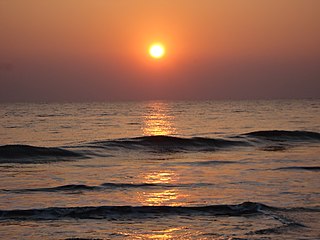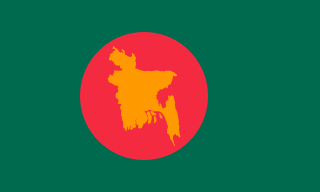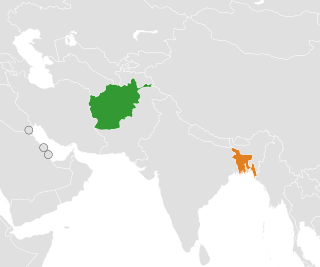
Bengal is a historical geographical, ethnolinguistic and cultural term referring to a region in the eastern part of the Indian subcontinent at the apex of the Bay of Bengal. The region of Bengal proper is divided between the modern-day sovereign nation of Bangladesh and the Indian states of West Bengal, and some parts of Assam.

The history of Bangladesh dates back over four millennia to the Chalcolithic period. The region's early history was characterized by a succession of Hindu and Buddhist kingdoms and empires that fought for control over the Bengal region. Islam arrived in the 8th century and gradually became dominant from the early 13th century with the conquests led by Bakhtiyar Khalji and the activities of Sunni missionaries like Shah Jalal. Muslim rulers promoted the spread of Islam by building mosques across the region. From the 14th century onward, Bengal was ruled by the Bengal Sultanate, founded by Fakhruddin Mubarak Shah, who established an individual currency. The Bengal Sultanate expanded under rulers like Shamsuddin Ilyas Shah, leading to economic prosperity and military dominance, with Bengal being referred to by Europeans as the richest country to trade with. The region later became a part of the Mughal Empire, and according to historian C. A. Bayly, it was probably the empire's wealthiest province.

Barisal Division is one of the eight administrative divisions of Bangladesh. Located in the south-central part of the country, it has an area of 13,225 km2 (5,106 sq mi), and a population of 9,325,820 at the 2022 Census. It is the least populous Division in Bangladesh. It is bounded by Dhaka Division on the north, the Bay of Bengal on the south, Chittagong Division on the east and Khulna Division on the west. The administrative capital, Barisal city, lies in the Padma River delta on an offshoot of the Arial Khan River. Barisal division is criss-crossed by numerous rivers that earned it the nickname Dhan-Nodi-Khal, Ei tin-e Borishal.

The Language Movement Day, officially called Language Martyrs' Day, is a national holiday of Bangladesh taking place on 21 February each year and commemorating the Bengali language movement and its martyrs. On this day, people visit Shaheed Minar to pay homage to the movement's martyrs and arrange seminars discussing and promoting Bengali as the state language of Bangladesh.

The Bengali language movement was a political movement in East Bengal in 1952, advocating the recognition of the Bengali language as a co-lingua franca of the then-Dominion of Pakistan to allow its use in government affairs, the continuation of its use as a medium of education, its use in media, currency and stamps, and to maintain its writing in the Bengali alphabet / Bengali script

Islam is the largest and the state religion of the People's Republic of Bangladesh. According to the 2022 census, Bangladesh had a population of about 150 million Muslims, or 91.04% of its total population of 165 million. Muslims of Bangladesh are predominant native Bengali Muslims. The majority of Bangladeshis are Sunni, and follow the Hanafi school of Fiqh. Bangladesh is a de facto secular country.

The independence of Bangladesh was declared from Pakistan on 26 March 1971, which is now celebrated as Independence Day. The Bangladesh Liberation War started on 26 March and lasted till 16 December 1971 which is celebrated as Victory Day in Bangladesh. In the early hours of March 26, 1971, the undisputed leader of Bengali, Sheikh Mujibur Rahman, declared independence before being arrested by the Pakistani army. Later many others declared on behalf of Sheikh Mujibur Rahman.
Homosexuality in India is socially permitted by most of the traditional native philosophies of the nation, and legal rights continue to be advanced in mainstream politics and regional politics. Homosexual cohabitation is also legally permitted and comes with some legal protections and rights.

East Bengal was the eastern province of the Dominion of Pakistan, which covered the territory of modern-day Bangladesh. It consisted of the eastern portion of the Bengal region, and existed from 1947 until 1955, when it was renamed as East Pakistan. East Bengal had a coastline along the Bay of Bengal to the south, and bordered India to the north, west, and east and shared a small border with Burma to the southeast. It was situated near, but did not share a border with Nepal, Tibet, the Kingdom of Bhutan and the Kingdom of Sikkim. Its capital was Dacca, now known as Dhaka.

Bengali nationalism is a form of ethnic nationalism that focuses on Bengalis as a single ethnicity by rejecting imposition of other languages and cultures while promoting its own in Bengal. Bengalis speak the Bengali language and mostly live across Bangladesh and the Indian states of West Bengal, Tripura and Assam. Bengali nationalism is one of the four fundamental principles according to the Constitution of Bangladesh and was the main driving force behind the creation of the independent nation state of Bangladesh through the 1971 liberation war. Bengali Muslims make up the majority (90%) of Bangladesh's citizens (Bangladeshis), and are the largest minority in the Indian states of Assam and West Bengal, whereas Bengali Hindus make up the majority of India's citizens (Indians) in Indian states of West Bengal and Tripura, and are the largest minority in the Indian states of Assam and Jharkhand and the independent state of Bangladesh (8%).

Lesbian, gay, bisexual, and transgender (LGBTQ) people in Bangladesh face widespread social and legal challenges not experienced by non-LGBT people.

Bangladesh's military history is intertwined with the history of a larger region, including present-day India, Pakistan, Nepal, Bhutan and Myanmar. The country was historically part of Bengal – a major power in South Asia and Southeast Asia.
The Krishak Sramik Party was a major anti-feudal political party in the British Indian province of Bengal and later in the Dominion of Pakistan's East Bengal and East Pakistan provinces. It was founded in 1929 as the Nikhil Banga Praja Samiti to represent the interests of tenant farmers in Bengal's landed gentry estates. Sir Abdur Rahim was its first leader. A. K. Fazlul Huq was elected leader in 1935 when the former was appointed as the president of the Central Legislative Assembly of India.

According to the 2011 census, West Bengal has over 24.6 million Muslims, making up 27% of the state's population. The vast majority of Muslims in West Bengal are ethnic native Bengali Muslims, numbering around over 22 million and comprising 24.1% of the state population. There also exists an Immigrants Urdu-speaking Muslim community numbering 2.6 million, constituting 2.9% of the state population and mostly resides in Urban areas of the state.

Bengali Muslims are adherents of Islam who ethnically, linguistically and genealogically identify as Bengalis. Comprising over 70% of the global Bengali population, they are the second-largest ethnic group among Muslims after Arabs. Bengali Muslims make up the majority of Bangladesh's citizens, and are the largest minority in the Indian states of West Bengal, Tripura and Assam.

Afghanistan–Bangladesh relations refer to the bilateral relations between Bangladesh and the Islamic Republic of Afghanistan. Both countries are members of the South Asian Association for Regional Cooperation and the Organization of Islamic Cooperation.
The Penal Code of Bangladesh is the official criminal code of Bangladesh. It is based on the Indian Penal Code enacted in 1860 by the Governor General-in-Council. It is similar to the penal codes of countries formerly part of the British Empire in South and Southeast Asia, including Singapore, India, Pakistan, Sri Lanka and Malaysia.
The Khalji dynasty was the first Muslim dynasty to rule the Bengal region in the Indian subcontinent. The dynasty, which hailed from the Garmsir region of present-day Afghanistan, was founded in 1204 by Muhammad Bakhtiyar Khalji, a Muslim Turko-Afghan general of the Ghurid Empire. The Khaljis initially pledged allegiance to Sultan Muhammad of Ghor until his death in 1206, though their rule in Bengal was mostly independent. Under the rule of Iwaz Khalji, Bengal experienced major developments such as its first naval force, flood defence systems and linkage with the Grand Trunk Road. The dynasty was based in the city of Lakhnauti in northern Bengal, later expanding eastwards and southwards. Nasiruddin Mahmud, the son of Mamluk sultan Iltutmish of Delhi managed to conquer Bengal in 1227; although the Khaljis briefly reasserted their independence, they surrendered to the Mamluks in 1231, who replaced them with a series of regional governors.
Anarchism in Bangladesh has its roots in the ideas of the Bengali Renaissance and began to take influence as part of the revolutionary movement for Indian independence in Bengal. After a series of defeats of the revolutionary movement and the rise of state socialist ideas within the Bengali left-wing, anarchism went into a period of remission. This lasted until the 1990s, when anarchism again began to reemerge after the fracturing of the Communist Party of Bangladesh, which led to the rise of anarcho-syndicalism among the Bangladeshi workers' movement.

The Greater Jessore region predominantly includes the districts of Jessore, Jhenaidah, Narail and Magura in Bangladesh, as well as the Bangaon subdivision of India. Nestled close to the Sundarbans, the region experienced human settlement early on. It served as the capital city of the Samatata realm and passed through several Buddhist and Hindu kingdoms such as the Palas and Senas. Jessore was ruled by Khan Jahan Ali of Khalifatabad, under the Muslim Sultanate of Bengal, who is credited with establishing the Qasbah of Murali and urbanising the region through advancements in transportation and civilization. Jessore later came to be ruled by various kings such as Pratapaditya and became familiar to contemporary European travellers as Chandecan before being annexed to the Mughal Empire in the seventeenth century. By 1757, the British East India Company had dominated and started to establish themselves in the region. British rule lasted up until 1947, with Jessore coming under the Provisional Government of Bangladesh from 1971 onwards.














